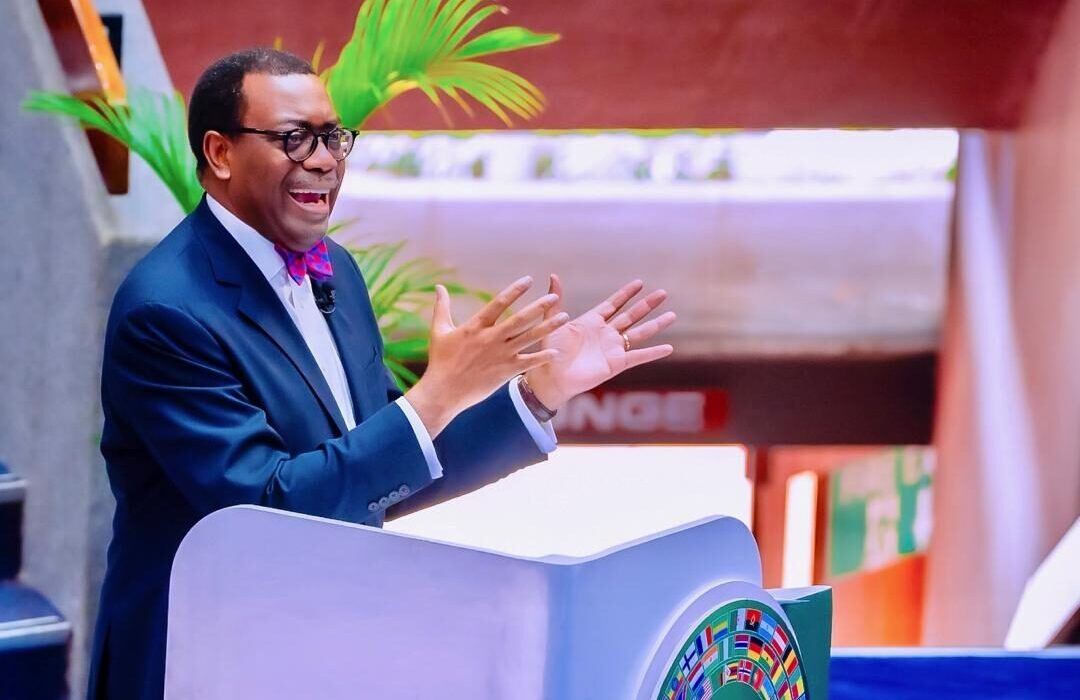Adesina Lashes out at IMF over Paltry Special Drawing Down Rights for African Nations

In a scathing critique, President of the African Development Bank (AfDB), Dr. Akinwumi Adesina, has condemned the International Monetary Fund’s (IMF) allocation of Special Drawing Rights (SDRs), revealing that Africa received a paltry 33billion, a mere 4.5% of 650 billion issued globally.
According to a statement released on Sunday, Dr. Adesina highlighted the glaring structural inequities in international financial mechanisms that continue to marginalize Africa, particularly during times of crisis such as the COVID-19 pandemic.
“Africa, the continent most in need and with the least resources to manage the economic fallout, received only 33billion, just 4.5% of the 650 billion in SDRs issued globally,” Dr. Adesina.
“This is unacceptable and underscores the urgent need for reform in the distribution model of SDRs,” he pointed out.
The AfDB president emphasized that the current distribution model fails to reflect the urgent financial needs of Africa, which bore some of the deepest economic scars from the pandemic, with limited fiscal capacity to implement robust recovery plans.
To address this imbalance, Dr. Adesina disclosed that the AfDB, in partnership with the African Union, has spearheaded efforts to rechannel unused SDRs from wealthier nations to African economies. Leveraging the AfDB’s AAA credit rating, a new framework co-developed with the Inter-American Development Bank (IDB) has now been approved by the IMF Board.
“This is a game-changer,” Dr. Adesina explained. “Each dollar of SDR rechanneled can be leveraged four to eight times. That means a 50billion reallocation could unlock up to 200 billion in new development financing—at no cost to taxpayers.”
The approval of the SDR rechanneling through multilateral development banks is a landmark step towards bridging Africa’s financing gap, especially in a global context of shrinking aid budgets and rising debt vulnerabilities.
The announcement comes as the African Development Fund (ADF) embarks on its 17th replenishment cycle. Dr. Adesina appealed to international donors to demonstrate stronger support, emphasizing that expanded concessional resources are critical for combating poverty and stimulating inclusive growth across the continent.
“With greater investment in health, innovation, and financing, Africa can protect its people, unlock its potential, and chart its own path to prosperity,” he added.
The SDR is an international reserve asset created by the IMF to supplement the official reserves of its member countries. The allocation of SDRs is based on a country’s quota in the IMF, which is determined by its economic size and position in the global economy.
The AfDB’s criticism of the IMF’s SDR allocation has sparked a heated debate among economists and policymakers, with many calling for a more equitable distribution of resources to support Africa’s development.
“Africa’s economic growth and development are critical to the global economy,” said Dr. Ngozi Okonjo-Iweala, Director-General of the World Trade Organization. “The IMF and other international financial institutions must do more to support Africa’s development, including through a more equitable allocation of SDRs.”
The AfDB’s efforts to rechannel unused SDRs to African economies have been welcomed by many as a step in the right direction. However, some have raised concerns about the potential risks and challenges associated with the rechanneling of SDRs.
“While the rechanneling of SDRs is a positive development, it is essential to ensure that the funds are used effectively and efficiently to support Africa’s development,” said Dr. Donald Kaberuka, former President of the AfDB. “The AfDB and other multilateral development banks must work closely with African governments and other stakeholders to ensure that the funds are used to support projects and programs that have a high impact on poverty reduction and economic growth.”
As the debate continues, one thing is clear: Africa’s development and economic growth are critical to the global economy, and the international community must do more to support the continent’s development, including through a more equitable allocation of resources such as SDRs.








